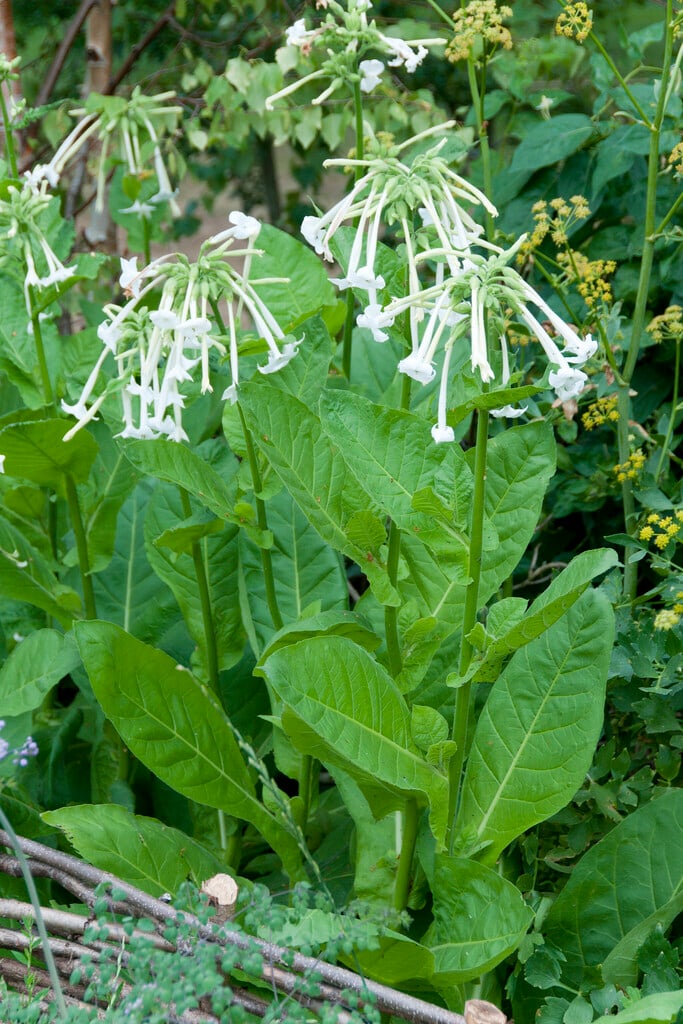Nicotiana sylvestris

woodland tobacco plant
A branching biennial or short-lived perennial grown as a half hardy annual in colder climates. Growing to 1.5m high, with a basal rosette of elliptic dark green leaves to 30cm in length, and a compact panicle of sweetly fragrant, salver-shaped white flowers to 9cm in length in summer
Size
Ultimate height
1–1.5 metresTime to ultimate height
1–2 yearsUltimate spread
0.1–0.5 metresGrowing conditions
Moisture
Moist but well–drainedpH
Acid, Alkaline, NeutralColour & scent
| Stem | Flower | Foliage | Fruit | |
| Spring | Green | |||
|---|---|---|---|---|
| Summer | White | Green | ||
| Autumn | ||||
| Winter |
Position
- Full sun
- Partial shade
Aspect
East–facing or South–facing or West–facing
Exposure
Sheltered Hardiness
H2Botanical details
- Family
- Solanaceae
- Native to GB / Ireland
- No
- Foliage
- Deciduous
- Habit
- Bushy
- Potentially harmful
- Harmful if eaten, avoid skin contact. Wear gloves and other protective equipment when handling. Pets (dogs): Harmful if eaten, avoid skin contact. For further information and contact numbers regarding pets, see the HTA guide to potentially harmful plants
- Genus
Nicotiana can be annuals, biennials, perennials or shrubs, with simple, alternate leaves and tubular or salver-shaped, often fragrant flowers borne in racemes or panicles in summer or autumn
- Name status
Correct
How to grow
Cultivation
Grow as a half-hardy annual in fertile, moist but well-drained soil in full sun or partial shade. Can be overwintered outdoors in southern counties or London gardens where temperatures only occasionally fall to -5°C, resprouting from rootstocks the following spring. Provide a dry winter mulch
Propagation
Propagate by seed
Suggested planting locations and garden types
- City and courtyard gardens
- Cottage and informal garden
- Wildlife gardens
- Flower borders and beds
Pruning
No pruning required
Pests
May be susceptible to aphids, thrips, glasshouse whitefly and glasshouse leafhopper
Diseases
May be susceptible to grey moulds and to virus diseases
Get involved
The Royal Horticultural Society is the UK’s leading gardening charity. We aim to enrich everyone’s life through plants, and make the UK a greener and more beautiful place.
